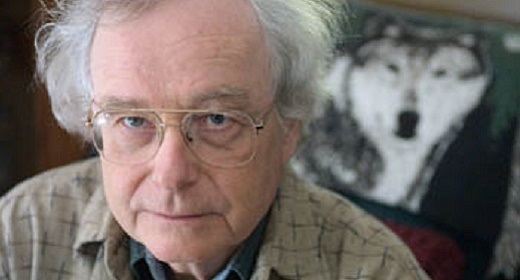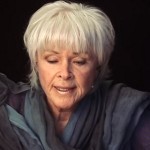by Neil Genzlinger: Ralph Metzner, a psychotherapist who began his career working with Timothy Leary on controversial studies at Harvard involving LSD and other drugs,..
then spent a lifetime exploring and writing about expanded consciousness in all sorts of cultures and settings, died March 14 at his home in Sonoma, California.
He was 82.
His wife, Cathy Coleman, said the cause was idiopathic pulmonary fibrosis.
Metzner, who received a Ph.D. at Harvard in 1962, was a graduate student there when he began working with Leary and Richard Alpert, who were clinical psychology professors and had begun exploring therapeutic and other uses for LSD, psilocybin and similar hallucinogens. The three later collaborated on “The Psychedelic Experience: A Manual Based on the Tibetan Book of the Dead” (1964), one of the core texts of the emerging psychedelic movement.
Leary and Alpert (who later took the name Ram Dass) were both dismissed from Harvard in 1963 amid revelations that they had given hallucinogens to undergraduates as part of their research, and Leary became an especially flamboyant figure in the counterculture, coining the catchphrase “Turn on, tune in, drop out.” Metzner took a more low-profile path but continued to work in the field, teaching for decades and writing numerous books, including “Maps of Consciousness” (1971), “The Unfolding Self: Varieties of Transformative Experience” (1986) and “The Expansion of Consciousness” (2008).
His interests came to encompass far more than hallucinogenic chemicals and mushrooms.
“It’s not really limited to the field of psychoactive plants and drugs anymore,” he said in a 2015 interview with the New Mexico PBS program “Report From Santa Fe.” “It’s more the general field of consciousness. You might say I’m a consciousness researcher, in all
kinds of ways.”
Those could include Eastern meditation, yoga, the spiritual practices of various indigenous peoples — anything, he said, that involved “expanding consciousness for increased knowledge and spiritual connection to the source or sources of life.”
Among his recent interests was whether some drugs that have been demonized, like MDMA (commonly known as ecstasy), might be useful in treating post-traumatic stress disorder or in end-of-life care.
“Ralph Metzner was part of a generation of researchers who quietly and resiliently kept doing their work for decades as the mainstream of the scientific community more or less repressed research into psychedelics and alternate states of consciousness,” Jesse Jarnow, author of “Heads: A Biography of Psychedelic America” (2016), said by email. “As much as he was a pioneer for his work at Harvard in the early ’60s, he was maybe more important as someone who continued to seriously explore the insights suggested by psychedelics in aboveboard ways when those states were so often dismissed as New Age mumbo jumbo.”
Among those noting his death was Zach Leary, Timothy Leary’s son.
“One of the essential anchors of the psychedelic movement,” he said on Facebook, “Ralph was able to gracefully articulate his insights in a way that was appropriate for researchers, mystics and everyday seekers alike.”
Metzner stressed that consciousness expansion was not always a mysterious, esoteric phenomenon.
“Actually, your consciousness expands every morning when you wake up,” he explained in the 2015 interview. “You’re coming out of a dream and you say, ‘Oh, here’s my room, my bed, my wife, my family, my dog, my job.’ That’s a series of consciousness expansions. And every night when you go to sleep, you kind of close in. And that’s a perfectly normal thing, to expand consciousness and to also be able to contract consciousness and focus.”
“The ideal,” he added, “is to have them be under your intentional control.”
Ralph Humphrey Guenther Metzner was born May 18, 1936, in Berlin. His father, Wolfgang, owned a publishing house, and his mother, Jessie (Laurie) Metzner, had worked for the League of Nations. His mother was Scottish, and after World War II, he alternated between schools in Scotland and Germany before attending the Queen’s College, Oxford. After receiving a degree there, he went to Harvard in 1958 to continue his studies.
Among the research he was involved in was an experiment in which inmates at a maximum-security prison were given psilocybin, a hallucinogen derived from mushrooms, to see if it reduced their recidivism rate. As with other experiments done by the Leary group, the scholarly tradition of giving the subjects a drug and then watching their reaction was not followed.
“We took the drugs with them,” Metzner recalled in 2017 in an episode of a podcast Zach Leary hosts for the Multidisciplinary Association for Psychedelic Studies. “I had about 10 or more psychedelic experiences with a group of convicts.”
Colleagues at the university thought they were crazy to take drugs with dangerous felons, but Metzner said the concerns were unfounded.
“There was never, ever a single moment of violence in the entire time, by anybody,” he said. “Not even a single moment of fear.”
He said the researchers in this and other studies took their work seriously.
“We would collect data,” he said. “We had questionnaires. It wasn’t just tripping. It was science.”
Zach Leary, whose father died in 1996, came to appreciate Metzner as a stabilizing influence in those early-’60s explorations.
“During his years working with Timothy and Alpert/Ram Dass,” Zach Leary wrote on Facebook, “it’s my feeling that he acted as the needed conduit to ground both the research and the extreme personalities of Leary/Alpert. He was skilled in his ability to act as the younger sage more interested in presenting sound breakthroughs than cultural drama.”
Metzner became a psychotherapist in the Bay Area and in 1975 joined the faculty of what was then the California Institute of Asian Studies, now the California Institute of Integral Studies. He taught there for 31 years, serving as academic dean from 1977 to 1989. He took emeritus status in 2006.
Coleman, whom he married in 1988, said his interests over the years spanned a broad range that included astrology, alchemy, actualism and more. Among his many books exploring such subjects, she said, “The Unfolding Self” seemed to strike a particular chord with many readers, blending “psychology, philosophy, consciousness and numerous other topics from a cross-cultural, cross-traditional spectrum.”
In the preface to a 1997 reissue of that book, Metzner explained that the transformative experiences he wrote about could have effects beyond the individual.
“I believe that positive transformation in groups, organizations, societies, and on the whole planet is a direct function of the number of individuals who are consciously attempting to evolve and transform themselves,” he wrote. “It appears natural for individuals, after having liberated their own minds to some degree, to want to share their insights and learnings with others and to apply them in social, economic, and political relationships.”
Metzner’s first marriage, to Susan Homer, ended in divorce in 1964. In addition to his wife, he is survived by a daughter, Sophie Metzner; a stepson, Elias Jacobson; two brothers, Robin and Ken; two half brothers, Guenther Metzner and Otto Metzner; and a half sister, Anna Metzner.

















































